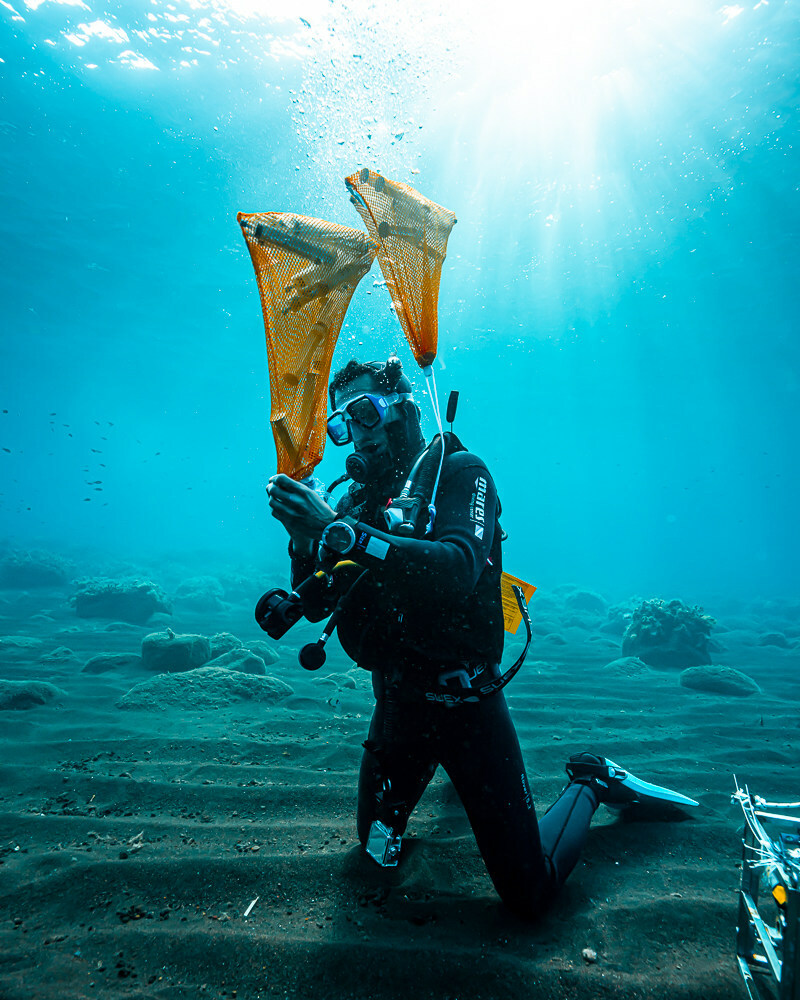Seed Health, a microbiome science company, announced its latest environmental research collaboration, led by Dr. Braden Tierney and his team at The Two Frontiers Project (2FP), to discover microorganisms that thrive in extreme, CO2-rich environments, empowering novel solutions for carbon dioxide (CO2) reduction.
Utilizing state-of-the-art scientific methods, the research team has already discovered novel cyanobacteria so efficient at consuming carbon dioxide that they appear to outperform other best-in-class carbon-capturing microbes. The group has already completed the first two expeditions, one off the coast of Sicily and the other in Colorado’s Rocky Mountains. Funded by Seed Health’s environmental division, SeedLabs, this research could help power next-generation carbon sequestration technology.
2FP’s innovative, data-driven approach to studying Earth’s CO2-rich environments is uniquely positioned to discover microbes ideal for carbon capture, propelling the development of advanced carbon sequestration technologies. This research not only fosters a sustainable future on Earth but could also address CO2-related health risks of space exploration and support human habitation on CO2-rich planets.
“Microbial ‘dark matter’ holds immense potential for understanding and improving the health of our planet. The discovery of an extremophilic microbe in Yellowstone’s hot springs half a century ago enabled the development of modern PCR testing; with the Two Frontiers Project, we’re taking the same philosophy of microbial exploration and scaling it with next-generation sequencing technologies,” explained Dr. Tierney. “With SeedLabs, we’ve already made groundbreaking progress and can continue to mine this research for applications in carbon capture and beyond.”
Collaborating with researchers from the University of Palermo, the team’s first expedition sampled water, sediment, and other sources of microbial life surrounding volcanic CO2 seeps near Vulcano, a small island off Sicily’s coast. Next, in conjunction with a broader team from Harvard Medical School, Colorado State University, and the University of Wisconsin-Madison, they cultured specific carbon-capturing organisms from these samples in a lab environment that favors the growth of microbes with the most voracious appetite for CO2. Through this work, the researchers isolated a never-before-seen volcanic green photosynthetic bacteria.
“These bacteria appear to grow naturally in these volcanic plumes, efficiently using the plentiful CO2; when measured against some of the fastest-growing cyanobacteria described, the strain was more efficient at carbon capture under several conditions. They also seem to have adapted to the bubbling, churning environment of the volcanic plumes by becoming denser and sinking more readily –– an unusual trait that could prove useful for potentially capturing carbon and sinking it into the deep ocean for sequestration,” said Max Schubert, Ph.D., a Harvard researcher who worked on the project. Early data also suggest this strain can even convert captured carbon into valuable compounds like biodegradable PHA bioplastic.
“Beyond our human research, we founded SeedLabs to harness the power of microbes to enhance biodiversity and restore ecosystems impacted by human activity. With this collaboration, we have the potential to power the ‘bio-revolution’ in carbon technology and uncover novel solutions to address the climate crisis,” said Seed Health Co-Founder Raja Dhir.






